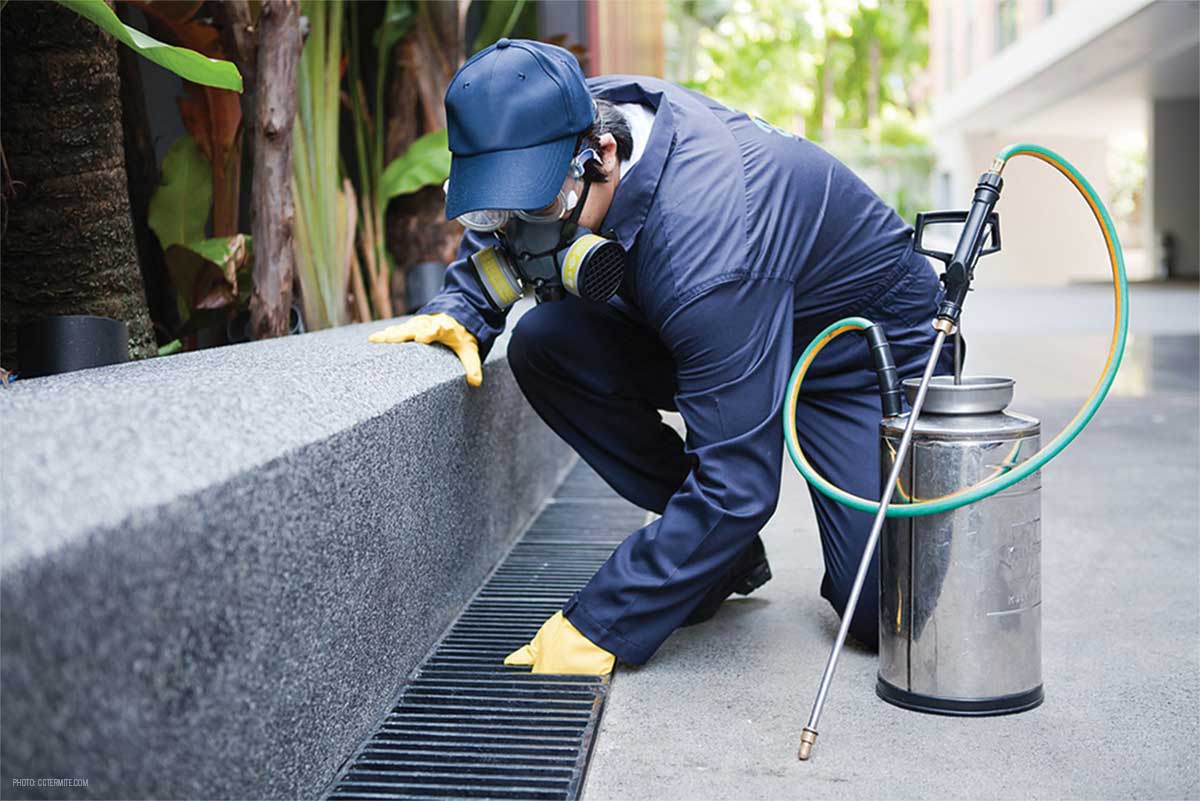Budget-friendly Pest Control Auckland Specialists: Maintain Your Residential Or Commercial Property Safe
Budget-friendly Pest Control Auckland Specialists: Maintain Your Residential Or Commercial Property Safe
Blog Article
Understanding Various Kinds Of Parasite Control Methods and Their Performance
When taking into consideration insect control approaches, it is necessary to comprehend the diverse strategies available and their differing degrees of performance. By discovering the nuances of these parasite control techniques, an extensive understanding of exactly how to address pest issues can be established.
Chemical Insect Control Approaches
Chemical parasite control methods play a crucial duty in successfully handling and getting rid of pest problems in numerous atmospheres. One of the essential advantages of chemical insect control is its capability to offer quick and targeted options to pest problems. Pest Control Auckland.
Nevertheless, it is important to take into consideration the possible dangers and downsides connected with chemical parasite control approaches. Overreliance on chemicals can cause the development of pesticide resistance in pests, making them more difficult to control in the long run. Furthermore, making use of certain chemicals can have hazardous effects on non-target organisms, the environment, and human wellness if not applied properly.

Biological Insect Control Techniques
Making use of natural predators and virus to handle pest populations effectively, organic insect control approaches offer a environment-friendly and lasting method to pest monitoring. By introducing or advertising the activity of microorganisms that naturally victimize or infect bugs, such as ladybugs for aphid control or certain germs for caterpillar infestations, biological control can assist preserve bug populations at convenient levels without the requirement for artificial chemicals. This method is especially helpful for natural farming practices, as it prevents using possibly damaging materials while maintaining crop health and wellness.

Physical Bug Control Techniques
While organic bug control techniques focus on taking advantage of all-natural killers and virus, physical bug control techniques utilize physical and mechanical obstacles to manage insect populaces. These techniques are commonly thought about eco-friendly as they minimize the use of chemicals. Physical parasite control consists of techniques such as capturing, utilizing barriers like displays or internet, and physically removing pests from the location.
Traps are frequently made use of in physical parasite control to catch and remove parasites like rats and bugs. These catches can be baited with food or pheromones to bring in the bugs, leading them to an included location where they can be easily disposed of. One more physical method is making use of barriers such as nets, displays, or fences to avoid pests from going into or infesting certain locations. As an example, mounting great mesh screens on windows can help keep out flies and insects.
Natural Parasite Control Methods
Integrating all-natural killers and plant-based repellents is a crucial method in implementing effective natural pest control methods. By urging the presence of helpful bugs like ladybugs, lacewings, or predacious termites, garden enthusiasts can naturally control pest populations. These predators feed upon typical garden bugs such as caterpillars, aphids, and mites, helping to keep a well balanced ecological community without the demand for chemical treatments.

Furthermore, applying cultural techniques such as plant rotation, friend why not look here planting, and keeping correct plant health can additionally improve the effectiveness of all-natural pest control approaches. These strategies not only assist in avoiding parasite invasions but likewise advertise biodiversity and general ecosystem durability. By integrating these all-natural techniques, people can successfully take care of insects while decreasing ecological impact.
Integrated Bug Monitoring (IPM) Method
Applying an Integrated Bug Administration (IPM) technique is necessary for properly regulating bug populations while lessening dependence on chemical pesticides. IPM is a lasting and comprehensive method that incorporates various bug control methods to accomplish lasting remedies. This approach focuses on avoidance, surveillance, and control to deal with bug concerns in an environmentally friendly way.
IPM integrates biological, cultural, physical, and mechanical techniques with the minimal and critical usage of chemicals when this content essential. By stressing aggressive measures such as habitat modification, biological control, and exclusion, IPM intends to decrease parasite populations and their effect on the ecological community. Normal tracking is critical in IPM to examine pest levels accurately and determine one of the most ideal control methods.
Among the vital benefits of IPM is its capability to lessen the dangers associated with too much chemical use, such as environmental contamination and harm to non-target organisms. In addition, IPM advertises a much more alternative method to pest management by considering the total ecosystem characteristics. Generally, the IPM method offers a efficient and sustainable service for bug control while promoting ecological duty.
Final Thought
In conclusion, comprehending the different kinds of parasite control methods and their efficiency is crucial in efficiently managing bug problems. Integrated Bug Management (IPM) method, which integrates different approaches for lasting parasite control, is increasingly being acknowledged as a eco pleasant and all natural remedy.
Chemical parasite control approaches play an essential duty in successfully handling and eradicating pest problems in different environments.Making use of all-natural killers and pathogens to take care of insect populations efficiently, biological parasite control methods offer a sustainable and green strategy to best site pest administration. By introducing or promoting the activity of organisms that naturally prey on or contaminate insects, such as ladybugs for aphid control or specific microorganisms for caterpillar problems, organic control can help preserve bug populations at manageable levels without the need for artificial chemicals.While organic bug control techniques concentrate on utilizing natural killers and virus, physical bug control methods use mechanical and physical obstacles to handle parasite populaces. Integrated Bug Monitoring (IPM) technique, which integrates different approaches for lasting bug control, is increasingly being acknowledged as a alternative and environmentally friendly solution.
Report this page